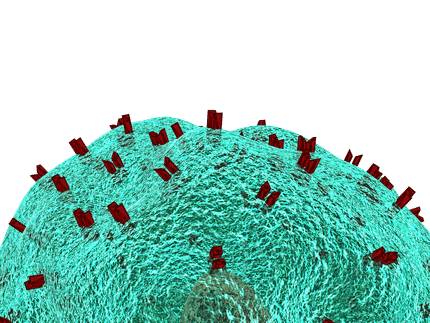454 sequencing at the forefront of bone marrow and stem cell therapy research
Roche Genome Sequencer FLX System creates new opportunities for HLA research at the Blood Centre Linz, Austria
Advertisement
The Blood Centre Linz, Austria has purchased a Genome Sequencer FLX System from Roche, for use in research on rejection reactions in bone marrow and Stem Cell transplantation. Using conventional Sanger sequencing it can take weeks to analyse large DNA regions. The Genome Sequencer FLX System can achieve this task within hours, improving efficiency and reducing costs. The ultimate goal of the research undertaken with the Genome Sequencer System is to create a significant reduction in the high rate of rejection reactions in transplantation.
Typically, the odds of finding a suitable stem cell donor is 1 in 500,000. Every year in the German speaking countries, approximately 12,000 people require urgent transplantations. The success of these transplantations is largely dependent on an exact tissue matching based upon HLA typing. The human leukocyte antigen system (HLA) is a major component of the immune system in humans and is fairly unique from person to person. In transplantation, any cell displaying an HLA type other than the patient's is "non-self" and is attacked by the immune system as an invader, resulting in the rejection of the tissue bearing those cells. Because of the importance of HLA in transplantation it is subject to extensive research, the HLA loci are among of the most frequently typed by serology or PCR relative to any other autosomal alleles.
With the Genome Sequencer from Roche Diagnostics, the researchers at the Blood Centre Linz will concentrate on making the HLA typing application significantly quicker and more efficient in order to ensure a significant decrease in graft rejection by a better matching recipients to donors.
Most read news
Other news from the department research and development

Get the life science industry in your inbox
By submitting this form you agree that LUMITOS AG will send you the newsletter(s) selected above by email. Your data will not be passed on to third parties. Your data will be stored and processed in accordance with our data protection regulations. LUMITOS may contact you by email for the purpose of advertising or market and opinion surveys. You can revoke your consent at any time without giving reasons to LUMITOS AG, Ernst-Augustin-Str. 2, 12489 Berlin, Germany or by e-mail at revoke@lumitos.com with effect for the future. In addition, each email contains a link to unsubscribe from the corresponding newsletter.




















































